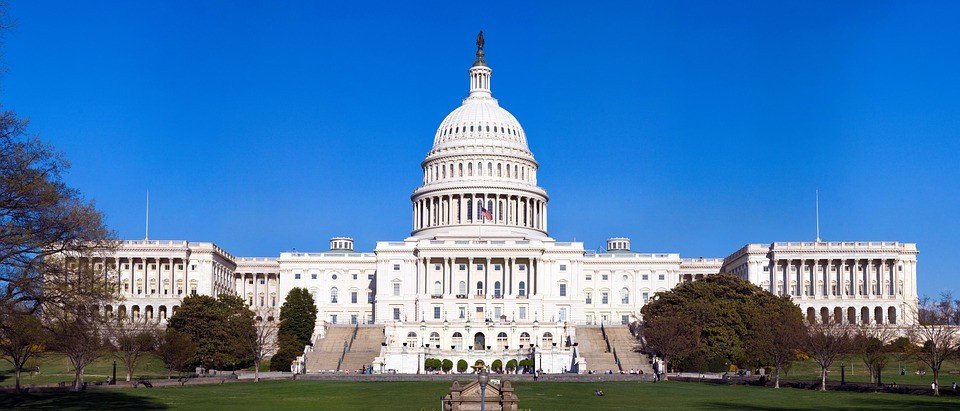Markets
Policy surprises in store under the Trump government
The policies of the new administration bear a remote resemblance, if any, to the campaign promises of the President-elect.

The presidential campaign in the US focused on several frivolous things (the silly wall, the dangerous registration of Muslims) that will largely disappear from post-election policies formed by the new administration and Congress. But interestingly, important policy issues that went almost unmentioned in the campaign will make a dramatic appearance in the next portfolio of government policies. Here I consider two:
- Expansive fiscal policy
- Changing financial market regulation
Expansive fiscal policy
First in importance is the Republicans’ new-found love for expansionary fiscal policy. A Republican Congress that nearly trashed the globally privileged position of American Treasury borrowing – a position won at the cost of American financing of two world wars – in the name of “austerity,” the policy that, in Germany’s hands, is bringing down the Euro – suddenly cannot find a reason to say “no” to President-elect Trump’s tax cuts and spending on infrastructure and military.
While I approve of the change in fiscal policy, which relieves overburdened monetary policy from rebuilding the economy trashed, first by Congress and then by Wall Street through:
- Congress’ pressure on Fannie Mae and Freddie Mac to ensconce every family in a McMansion,
- Wall Street’s “clever” use of packaged securities to hide the enormous risks being created by this housing policy,
I find the switching of gears by the Republican Congress hypocritical, to put it kindly. Partisan politics dressed in the finery of fiscally conservative principle.
This change in fiscal policy will bring many benefits of a much-needed release of monetary policy from its necessary low-interest rate policy that had created distortions throughout the globe.
Liberating the Fed to raise interest rates will return the inflated values of American equities and “high yield” debt securities around the globe to a more normal relationship to yield on the zero-risk US Treasury bill. This will disappoint investors in emerging markets, but a hard-eyed investor should take a good look at the governments of Brazil, China, and Turkey – to name some conspicuous examples – and ask themselves why it makes sense to trust these countries with their hard-earned money.
It will elevate the value of American pension funds relative to the equity portfolios of the wealthy, bringing some recovery to the out-of-whack ratio of high incomes to average incomes.
Higher US interest rates will free the Eurozone and Japan from the dangerous negative interest rate policies that have made shambles of the banking systems in these two economies.
Changing financial market regulation
Changing financial market regulation was expected. President-elect Trump made a major campaign promise to dump Dodd-Frank, which has been exposed as an expensive sop to angry voters following the Financial Crisis. Congressman Jeb Hensarling has a replacement bill that is substantially simpler and would be more effective.
But I predict that Dodd-Frank will not be repealed. The Fed’s warning that the next Too-Big-to-Fail (TBTF) bank’s liquidity crisis will fall on the head of the Republican Party if Dodd-Frank is repealed is a credible threat that Republicans will ultimately heed. Experts put the odds of a bank liquidity squeeze within the next three years at 50:50. The odds are too steep. But it would be enough to rid us of the expensive, ineffectual requirements placed on TBTF banks to write regular “living wills” and conduct simulations of the Fed’s scenarios of possible future disasters and the effects of these disasters on TBTF banks.
The big surprise, however, is likely changes in market regulation. Democratic appointees at the SEC were slowly squeezing the breath from one of America’s most important national treasures, financial exchanges for stocks and futures. New proposed Trump appointees to the SEC promise to eliminate the anachronistic National Market System (NMS) that is contorting the stock exchanges. New Republican appointees to the Commodity Futures Trading Commission (CFTC) promise to stop the move of the outgoing Democrats to impose equally anachronistic position limits on futures trading.
Conclusion
All in all, the policies of the new administration bear a remote resemblance, if any, to the campaign promises of the President-elect. Nothing new there. No President ever delivers on his promises. But I wonder; what President-elect Trump’s supporters are thinking about this turn of events?
—
DISCLAIMER: This article expresses my own ideas and opinions. Any information I have shared are from sources that I believe to be reliable and accurate. I did not receive any financial compensation in writing this post, nor do I own any shares in any company I’ve mentioned. I encourage any reader to do their own diligent research first before making any investment decisions.

-

 Cannabis1 week ago
Cannabis1 week agoAurora Cannabis Beats Expectations but Faces Short-Term Challenges
-

 Crowdfunding5 days ago
Crowdfunding5 days agoSavwa Wins Global Design Awards and Launches Water-Saving Carafe on Kickstarter
-

 Biotech2 weeks ago
Biotech2 weeks agoAsebio 2024: Driving Biotechnology as a Pillar of Spain and Europe’s Strategic Future
-

 Business12 hours ago
Business12 hours agoDow Jones Nears New High as Historic Signals Flash Caution

























You must be logged in to post a comment Login